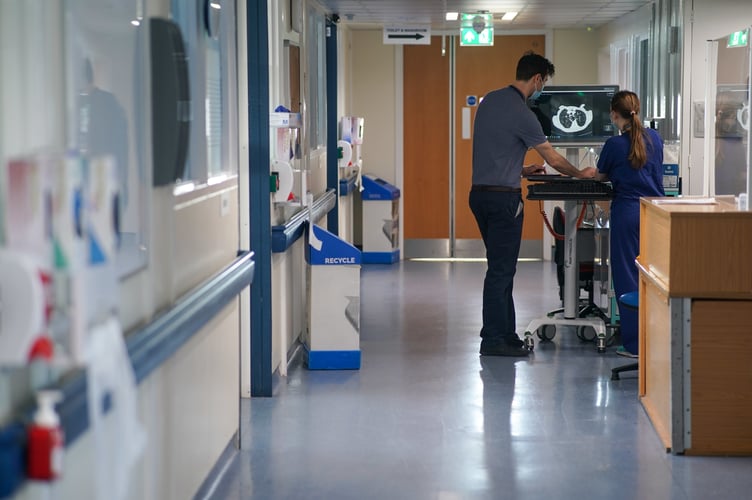Tens of thousands of patients were waiting for routine treatment at the Wye Valley Trust in May, new figures show.
The data comes as health secretary Wes Streeting said the NHS has been "wrecked".
NHS England figures show 24,176 patients were waiting for non-urgent elective operations or treatment at Wye Valley NHS Trust at the end of May – up from 23,790 in April, and 22,439 in May 2023.
Of those, 956 (4%) had been waiting for longer than a year.
The median waiting time from referral at an NHS Trust to treatment at the Wye Valley Trust was 15 weeks at the end of May – the same as in April.
Nationally, 7.6 million people were waiting to start treatment at the end of May. This was up slightly from 7.57 million at the end of March and the first time the NHS waiting list has risen in seven months.
"It’s clear to anyone who works in or uses the NHS that it is broken," Mr Streeting said, as he launched a new probe into conditions in the health service.
"Unlike the last government, we are not looking for excuses. I am certainly not going to blame NHS staff, who bust a gut for their patients.
"This Government is going to be honest about the challenges facing us, and serious about solving them."
Separate figures show 1.7 million patients in England were waiting for a key diagnostic test in May – a rise on 1.6 million in April.
At the Wye Valley Trust, 6,219 patients were waiting for one of 13 standard tests, such as an MRI scan, non-obstetric ultrasound or gastroscopy at this time.
Of them, 1,545 (25%) had been waiting for at least six weeks.
Other figures from NHS England show that four out of nine cancer patients urgently referred to the Wye Valley Trust in May received treatment within two months of their referral.
A month previously – when 15 patients were referred – four were treated within 62 days.
In May 2023, 39 out of 74 patients were treated within this period.
Sarah Scobie, deputy director of research at the Nuffield Trust, said the NHS faces an "enormous uphill battle".
"Fixing it will mean addressing the structural vulnerabilities which left the NHS in a weak position going into the pandemic," she added.
She said this will include "underinvestment in buildings and equipment and improving funding flows to out-of-hospital services like GPs and district nursing".
Professor Sir Stephen Powis, NHS national medical director, said: "Frontline teams are continuing to work exceptionally hard under significant pressure to provide the best care they can for patients, but everyone recognises that access and waiting times are currently far from what the public have a right to expect.
"Despite the challenges, it is vital that people come forward when they have health concerns - a huge amount of work is going on to diagnose more cancers at an earlier stage, so if you do have worrying symptoms, it’s important to see your GP as soon as possible.
"Everyone working in the health service is committed to working with the government, and with patients and the public, to tackle these challenges, to improve performance and quality in core services, and in the longer term to build an NHS fit for the future. "




